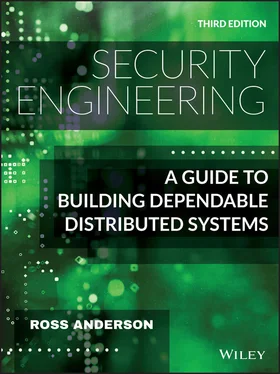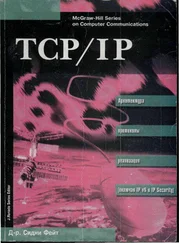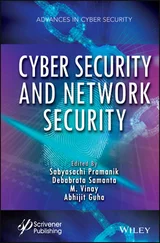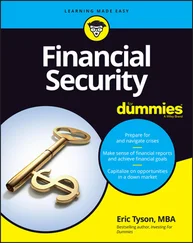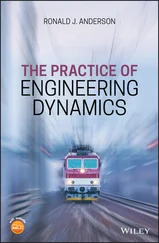What might the future hold? A likely game-changer is that as we put software into safety-critical systems like cars and medical devices, and connect them to the Internet, safety and security engineering are converging. This is leading to real strains; while security engineers fix bugs quickly, safety engineers like to test systems rigorously against standards that change slowly if at all. A wicked problem is how we will patch durable goods. At present, you might get security patches for your phone for three years and your laptop for five; you're expected to buy a new one after that. But cars last for fifteen years on average and if we're suddenly asked to scrap them after five the environmental costs won't be acceptable. So tell me, if you're writing navigation software today in 2020 for a car that will launch in 2023, how will you ensure that you can keep on shipping security patches in 2033, 2043 and 2053? What tools will you choose today?
Finally, there has been a sea change in the political environment. After decades in which political leaders considered technology policy to be for men in anoraks, and generally took the line of least resistance, the reports of Russian interference in the Brexit referendum and the Trump election got their attention. The prospect of losing your job can concentrate the mind wonderfully. The close attention of lawmakers is changing the game, first with tighter general rules such as Europe's General Data Protection Regulation; and second as products that are already regulated for safety, from cars and railway signals to children's toys acquire software and online connectivity, which has led to rules in Europe about how long software has to be maintained.
The questions the security engineer has to ask today are just the same as a decade ago: what are we seeking to prevent, and will the proposed mechanisms actually work? However, the canvas on which we work is now much broader. Almost all human life is there.
Ross Anderson
Cambridge, October 2020
Preface to the Second Edition
The first edition of Security Engineering was published in May 2001. Since then the world has changed.
System security was one of Microsoft's lowest priorities then; it's now one of the highest. The volume of malware continues to increase along with the nuisance that it causes. Although a lot of effort has gone into defence – we have seen Windows NT replaced by XP and then Vista, and occasional service packs replaced by monthly security patches – the effort put into attacks has increased far more. People who write viruses no longer do so for fun, but for profit; the last few years have seen the emergence of a criminal economy that supports diverse specialists. Spammers, virus writers, phishermen, money launderers and spies trade busily with each other.
Cryptography has also moved on. The Advanced Encryption Standard is being embedded into more and more products, and we have some interesting developments on the public-key side of things too. But just as our algorithm problems get solved, so we face a host of implementation issues. Side channels, poorly designed APIs and protocol failures continue to break systems. Applied cryptography is harder than ever to do well.
Pervasive computing also opens up new challenges. As computers and communications become embedded invisibly everywhere, so problems that used to only afflict ‘proper computers’ crop up in all sorts of other devices too. What does it mean for a thermometer to be secure, or an air-conditioner?
The great diversity of intelligent devices brings with it a great diversity of interests and actors. Security is not just about keeping the bad guys out, but increasingly concerned with tussles for power and control. DRM pits the content and platform industries against consumers, and against each other; accessory control is used to tie printers to their vendors' cartridges, but leads to antitrust lawsuits and government intervention. Security also interacts with safety in applications from cars through utilities to electronic healthcare. The security engineer needs to understand not just crypto and operating systems, but economics and human factors as well.
And the ubiquity of digital devices means that ‘computer security’ is no longer just a problem for a few systems specialists. Almost all white-collar crime (and much crime of the serious violent sort) now involves computers or mobile phones, so a detective needs to understand computer forensics just as she needs to know how to drive. More and more lawyers, accountants, managers and other people with no formal engineering training are going to have to understand system security in order to do their jobs well.
The rapid growth of online services, from Google and Facebook to massively multiplayer games, has also changed the world. Bugs in online applications can be fixed rapidly once they're noticed, but the applications get ever more complex and their side-effects harder to predict. We may have a reasonably good idea what it means for an operating system or even a banking service to be secure, but we can't make any such claims for online lifestyles that evolve all the time. We're entering a novel world of evolving socio-technical systems, and that raises profound questions about how the evolution is driven and who is in control.
The largest changes, however, may be those driven by the tragic events of September 2001 and by our reaction to them. These have altered perceptions and priorities in many ways, and changed the shape of the security industry. Terrorism is not just about risk, but about the perception of risk, and about the manipulation of perception. This adds psychology and politics to the mix. Security engineers also have a duty to contribute to the political debate. Where inappropriate reactions to terrorist crimes have led to major waste of resources and unforced policy errors, we have to keep on educating people to ask a few simple questions: what are we seeking to prevent, and will the proposed mechanisms actually work?
Ross Anderson
Cambridge, January 2008
Preface to the First Edition
For generations, people have defined and protected their property and their privacy using locks, fences, signatures, seals, account books, and meters. These have been supported by a host of social constructs ranging from international treaties through national laws to manners and customs.
This is changing, and quickly. Most records are now electronic, from bank accounts to registers of real property; and transactions are increasingly electronic, as shopping moves to the Internet. Just as important, but less obvious, are the many everyday systems that have been quietly automated. Burglar alarms no longer wake up the neighborhood, but send silent messages to the police; students no longer fill their dormitory washers and dryers with coins, but credit them using a smartcard they recharge at the college bookstore; locks are no longer simple mechanical affairs, but are operated by electronic remote controls or swipe cards; and instead of renting videocassettes, millions of people get their movies from satellite or cable channels. Even the humble banknote is no longer just ink on paper, but may contain digital watermarks that enable many forgeries to be detected by machine.
How good is all this new security technology? Unfortunately, the honest answer is ‘nowhere near as good as it should be.’ New systems are often rapidly broken, and the same elementary mistakes are repeated in one application after another. It often takes four or five attempts to get a security design right, and that is far too many.
The media regularly report security breaches on the Internet; banks fight their customers over ‘phantom withdrawals’ from cash machines; VISA reports huge increases in the number of disputed Internet credit card transactions; satellite TV companies hound pirates who copy their smartcards; and law enforcement agencies try to stake out territory in cyberspace with laws controlling the use of encryption. Worse still, features interact. A mobile phone that calls the last number again if one of the keys is pressed by accident may be just a minor nuisance – until someone invents a machine that dispenses a can of soft drink every time its phone number is called. When all of a sudden you find 50 cans of Coke on your phone bill, who is responsible, the phone company, the handset manufacturer, or the vending machine operator? Once almost every electronic device that affects your life is connected to the Internet – which Microsoft expects to happen by 2010 – what does ‘Internet security’ mean to you, and how do you cope with it?
Читать дальше
